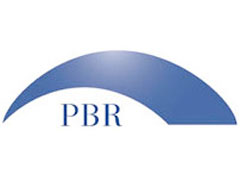Music Therapy Strikes a Chord with Dementia Patients
A person with late-stage dementia who is non-verbal and usually non-responsive sits quietly in his wheelchair, seemingly oblivious to his surroundings. A music therapist enters the room, strumming on a guitar and singing, together with a recreation therapist who provides touch and verbal interaction for patients. The patient suddenly begins to tap his toe, smiles and reaches out to the therapists.
For Megan Gibson, a music therapist in Sunnybrook & Women's Long Term and Veterans' Care Directorate, this transformation is a daily scene.
"Clearly visible reactions are often common when music is brought into the picture," says Megan. "Our clients seem generally more alert, attentive and active during sessions with music. They'll maintain eye contact, as well as smile, laugh and even verbalize during the session."
Funded by the Practice-Based Research Award, the project looks at patterns and meaning within group music stimulation sessions for persons living with late-stage dementia. The characteristics of late-stage dementia include primarily non-verbal communication, a non-ambulatory (rarely able to propel their own wheelchairs) state, fully dependent on others for daily living activities and also the risk for isolation and stagnation. "This intervention was specifically designed to make meaningful connections with this special group and better their quality of life."
"For this group, it's often almost impossible to simply cross the hall independently. It can be challenging to work with people with late-stage dementia, as you're limited to what they can work with and respond to. But music consistently appears to reach them."
Each session, co-led by a music therapist and a recreation therapist, features live music (guitar or piano, along with singing by the therapist), as well as a touch component for those who wish to reach out or have their hand held. There is also a sensory stimulation component by bringing in familiar items such as leaves and hats. As well, a theme with a keyword to link the songs, items, sounds and scents is used.
"Music seems to act as a key, the participants may access other skills a little more easily and may be more responsive to other interventions."
There has been little research to date targeting music therapy among the population with late-stage dementia, which is growing as our population ages. "This study will lay the groundwork for future studies, specifically, how these clients respond to this type of intervention."
PDF / View full media release »


